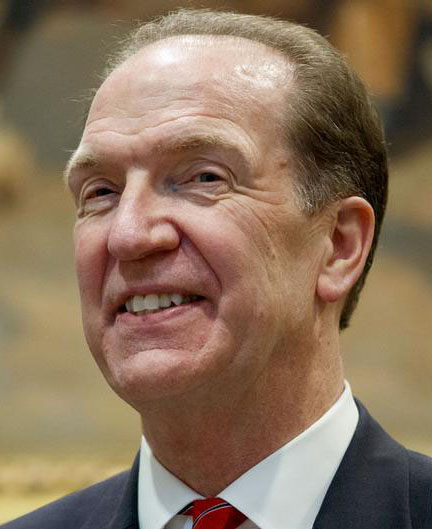
As the sense of an urgent and worsening crisis in poor countries arising from the attack of the coronavirus pandemic becomes increasingly clear, World Bank Group President David Malpass has called for a re-shaping of the governance arrangements control the debt burden of those countries in order to further emphasize an already critical situation.
“The urgency is clear. We need to avoid repeating the protracted debt restructuring processes that delayed past recoveries and created unsustainable cycles of debt, ”Malpass told the Nov. 16 meeting of the World Food Program Executive Board.
In what amounted to a poignant and focused speech in the context of global circumstances, Malpass said that while the Bank welcomed the G20 Debt Service Prevention Initiative (DSSI) which stated that it had provided “a large financial breathing room need ”for poor countries,“ these initiatives provide only temporary debt relief, delaying payments but not ultimately reducing the debt burden. ”Against this background, he revealed, the World Bank / IMF Development Committee had asked the Bank and the Fund to propose measures to address the unsustainable debt burdens of low-income countries. “… Greater transparency will be essential to better balance the interests of the people with those signing the debt and investment contracts,” said Malpass.
In a poignant presentation that, in general, addressed the need to quickly implement measures to ease the pressure associated with COVID-19 on the most affected countries, Malpass stated that the a sense of urgency stemmed from the fact that the virus had the effect of transforming our world “beyond anything we could have imagined.” He had, he said, dealt with “an unprecedented obstacle to the global effort to end extreme poverty and promote shared prosperity,” bringing an end to “a decade of steady progress on poverty reduction.”
“COVID-19 has changed all aspects of commercial activity and commerce, shrinking GDP, igniting a debt crisis and triggering serious food crises. Illness, food insecurity, job losses, and school closures are eroding human capital, leaving a loss in earnings that could last a lifetime, ”Malpass told the gathering.
In a speech that was also considering further initiatives to help respond to the tailspin that the pandemic has thrown into every corner of the world, Malpass said the World Bank was already in the process of committing “a record US $ 160 billion over 15 months, including grants and concessional funding ”to help ease the global crisis. He said 40% of this amount had already been committed in the first six months and that up to US $ 12 billion of “fast track financing” was currently available “for the purchase of connected health supplies with COVID, such as masks and emergency room equipment. ”
Meanwhile, while trying to allay fears already expressed in poor countries that they might find themselves ‘standing in line’ to gain access to vaccines created in developed countries, Malpass said the Bank was already “working hard with countries to provide technical advice on effective vaccine acquisition and distribution. ”
And in a frank assessment of the prospects for a rapid global recovery after the Covid, Malpass said the pandemic had the effect of “changing our world beyond anything we could have done.” ‘is likely to leave a “lasting scar on the next generation, with the hardest impact on women, children and the vulnerable. “The circumstances, he said, amounted to” an unprecedented global crisis requiring international cooperation at all levels. “
Meanwhile, Malpass revealed that the Bank’s household surveys revealed that “large numbers of people are running out of food or reducing food consumption in order to adjust their spending to worsening circumstances.” For this reason, the Bank’s chief official said, the organization has been encouraging countries to keep trade open and food flowing across the world.